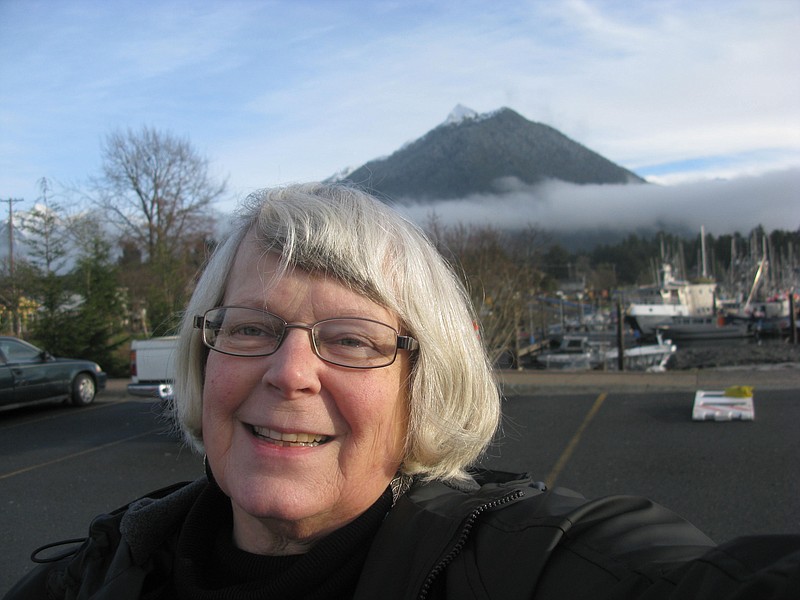Photo Gallery
(Way) Northern Exposure: Life a tad different for Chattanooga minister who moved to Alaska
About Alaska
* Alaska is the largest state in the United States in land area at 663,268 square miles, over twice the size of Texas, the next largest state.* It is larger than all but 18 sovereign countries. It is larger than the combined area of the 22 smallest U.S. states. Rhode Island could fit into Alaska 425 times.* If placed in the center of the 48 states in the contiguous U.S., Alaska would stretch from the East Coast to the West Coast* More than 300 islands make up the Aleutian Islands, which stretches over 1,200 miles into the Pacific Ocean.* Of the 20 highest peaks in the United States, 17 are in Alaska. Denali, the highest peak in North America, is 20,320 ft. above sea level.* In 1867 United States Secretary of State William H. Seward offered Russia $7,200,000, or two cents per acre, for Alaska.— alaska.gov, 50states.com, wikipedia.org
Just after moving to Sitka, Alaska, Laura Trent headed to one of the small town's grocery stores. The moment she walked in, she ran headlong into a taste of her Chattanooga home.
A display of MoonPies from Chattanooga Bakery.
"I took a picture of it," Trent says, followed by her rich, deeply infectious laugh, which bursts out frequently when she talks.
That taste of home is one of the few things in Sitka that's similar to Chattanooga, where Trent graduated from City High School - now the Center for the Creative Arts - lived, worked, married and attended the University of Tennessee at Chattanooga.
She moved to Sitka in September to take the job as interim minister at the town's Methodist church and was scheduled to leave by Christmas, but that deadline passed without any movement. The minister who is supposed to replace her is coming from the Philippines and is having some immigration issues, so Trent's stay will stretch out a bit longer.
"I don't know what the problem has been with her immigration," the 72-year-old Trent shrugs. "I have told them I'm willing to stay until June."
While in Alaska, she'll continue serving as minister at the United Methodist Church of Sitka, which has a congregation - depending on whether it's winter or summer - of 35 to 40, she says. The people in Sitka - population about 8,000 to 9,000 depending, again, on whether it's winter or summer - "are great, lovely," she says.
"People are warm and welcoming and friendly and there's a strong sense of community."
While living in Alaska is somewhat out of her norm, Trent has moved around a lot in her life, especially since she was ordained as a Methodist minister in 1994. Add together the years before and the years after she became a minister and she has lived in Tennessee, Mississippi, Louisiana, Georgia, North Carolina and Puerto Rico, as well as a seven-year stint in Vienna, Austria.
The 'calling'
Becoming a minister was "a whap-upside-the-head calling," she says. "While it was something that I have reflected on for a long time," she was planning to go into psychology, which she studied as an undergrad at UTC. But coming from a family with several Methodist ministers in it, "if someone had said something before, I might have gone into the seminary," she says.
Although not the first female minister in the UMC's Holston Conference, she was ordained "on the early side of women in the pulpit - in the South particularly." In doing so, she faced the usual type of pushback that one would expect as a woman going into a traditionally male job, but "you just keep doing it."
To help her keep doing it, she often relied on what she calls "mantras," including one written by Julian of Norwich, a Christian theologian and mystic in the 14th century: "All shall be well, and all shall be well and all manner of thing shall be well." She also used Luke 1:37: "For nothing is impossible with God."
She was assigned to several churches in the South, including such Chattanooga-area churches as St. Luke, Forrest Avenue, Hands-Across-the-River Parish and McFarland in Rossville. After leaving Chattanooga, she bopped around the South for years, serving churches in Mississippi, North Carolina and Tennessee.
Then she was appointed to a surprising assignment - the English-Speaking United Methodist Church of Vienna. She stayed for seven years, ministering to a congregation that ran about 125 to 140 and included congregants from 40 different countries.
"It was just a good fit," she says."Very unique. I enjoyed it."
Trent had returned to the U.S. and was retired for two years when a minister she knew in Vienna called and asked if she would be interested in serving for three months in Sitka. The minister had been the pastor in the Alaskan town and was leaving.
"I had not quite figured out what to do next when this opportunity emerged," Trent says. "I said, Sure."
Coming home
After coming home from Austria, Trent reconnected with several friends from her school days in Chattanooga. Carolyn Mitchell met Trent when they both were students at City High School and graduated together in 1962. Mitchell describes Trent as "a free spirit with a profound sense of responsibility."
Gary McCardell also was a classmate of Trent's at City High. While he didn't see her for several decades after school, he now catches up with her every now and then during a once-a-month meeting of City High grads in town.
"Some people age a lot and some people don't seem to age at all; she's one of those people who doesn't seem to age in terms of appearance," he says. "She's a cheerful person with a sense of friendship."
Trudy Trivers met Trent even earlier at Brainerd Junior High and, as a teacher at Chattanooga School for the Arts and Sciences, also taught Trent's children, Trent and Evelyn, who's now the pastor at St. Luke UMC. Although, like McCardell, Trivers lost touch while Trent was gallivanting all over the place, they recently reconnected and now are in the same mah-jongg group.
"She has wonderful stories and yet she will always take the time to listen and give loving support," Trivers says. "Laura is a special woman."
Living in Alaska
Sitka is located on Baranof Island on Alaska's Panhandle, also called the Inside Passage, the part of the state that stretches south like a finger. It's the site where Russia officially signed the papers that transferred Alaska to the United States; the land was bought for $7.2 million, or 2 cents per square mile.
Although winter lasts a lot longer up there, other common misconceptions about Alaska down "South" - as Alaskans call any part of the United States that isn't Alaska - aren't true, Trent says. Grizzly bears don't pad down Main Street and "I don't live in an igloo," she says. Fish makes up a good bit of the diet and grocery store items - including food for her cat - is about twice to three times as expensive as in Tennessee because it must be brought in by boat or airplane, she adds.
One thing that is unexpectedly similar to Chattanooga, she says, is Sitka's climate, which is cooler than Chattanooga but not radically different. Because the town is on the coast, sea breezes keep temperatures from dropping much below freezing, even in winter. In January, the average low temperature is 32 degrees while its average high in August is 62, according to usclimatedata.com. And snow is not as frequent or as deep as you might expect, Trent says, although it obviously comes more often than it does here.
"We don't have the extremes that Anchorage or Juneau have," she adds.
Anchorage, located 1,000 miles west on the Cook Inlet, has average summer temperatures of 55 to 78 degrees, but drops to averages of 5 to 30 in winter; it also gets an average of 75 inches of snow each winter. This week it also dropped to minus-59 in the city.
Nor do folks in the "South" truly understand "how huge Alaska really is," she says. "It's humongous."
If you placed Alaska in the center of the Lower 48 states, it would stretch from the East to the West Coast. Awhile back, Trent watched a video of people standing on the deck of a ship, throwing fish to eagles. That scene, while still off the coast of Alaska, "was as far from me [in Sitka] as New York is to Los Angeles."
Sitka, which means "People on the Outside of Baranof Island" in the Native Alaskan dialect of Tinglit, is 174 miles southwest of the state capital of Juneau, but there is only one short road between the two, so travelers must take a ferry, which accounts for about 95 percent of the trip. The closest city of size is Vancouver, British Columbia, south of Sitka, but it's 1,300 miles away by car.
The scenery is "gorgeous," with mountains to the east of Sitka and Mt. Edgecumbe, a dormant - "we hope," Trent says - volcano on the west. There are "beautiful sounds" - the water kind - "and little islands scattered everywhere." If you need to fly, there's an airport in which Delta and Alaska Air brings its jets.
While Trent says she'll miss some things about Sitka - "It occurs to me that I actually miss everywhere I've ever lived," she says - she will be glad to return to Chattanooga, if only for one thing.
"I miss my EPB," she laughs.
Contact Shawn Ryan at sryan@timesfreepress.com or 423-757-6327.

